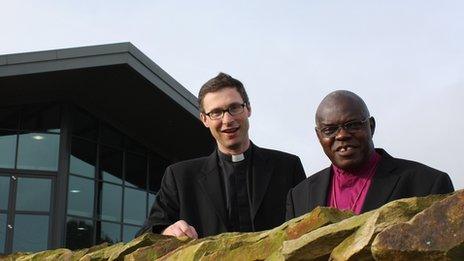No 'taint' over first female bishop, archbishop says
- Published
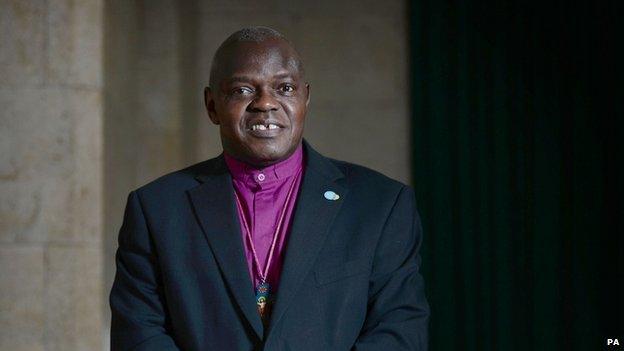
Dr Sentamu said archbishops had always had the power to delegate parts of their role as chief consecrator
The Archbishop of York has said his decision not to take part in the "laying on of hands" for a new bishop was not due to a "theology of taint".
Dr John Sentamu referred to the idea that he would be "tainted" by consecrating the Church of England's first woman bishop.
He will lay hands on the Rev Libby Lane when she becomes Bishop of Stockport on Monday, but will not when the Rev Philip North becomes Bishop of Burnley.
Mr North opposed women as bishops.
He will be consecrated on 2 February in York Minster, where two bishops will take part in the traditional laying on of hands while Dr Sentamu "will lead all other bishops present in exercising gracious restraint".
Campaign group Women and the Church (Watch) said it was "unprecedented" for an archbishop to attend such a ceremony in his province and not lay hands on a new bishop.
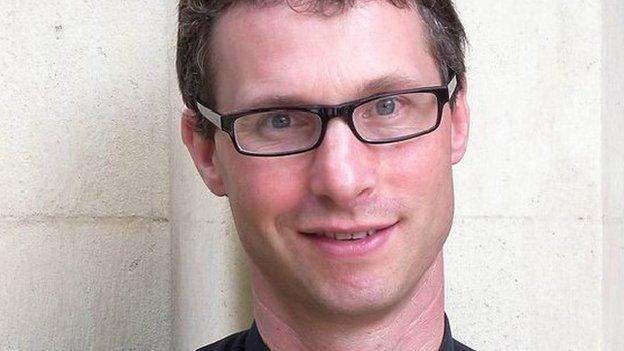
The reverend Philip North will be consecrated at York Minster on 2 February
BBC religious affairs correspondent Caroline Wyatt said the two consecrations "illustrate the tensions that lie at the very heart of the Church of England's compromise between traditionalists and reformers".
In a statement, external, Dr Sentamu said archbishops had always had the power to "delegate" part of their role as chief consecrator.
"Any suggestion that the arrangements proposed for the consecration of the Bishop of Burnley are influenced by a theology of 'taint' would be mistaken," he said.
He cited the examples of two traditionalist bishops he had consecrated "despite the fact that I have been ordaining women to the priesthood since I first became Bishop for Stepney in 1996".

Analysis
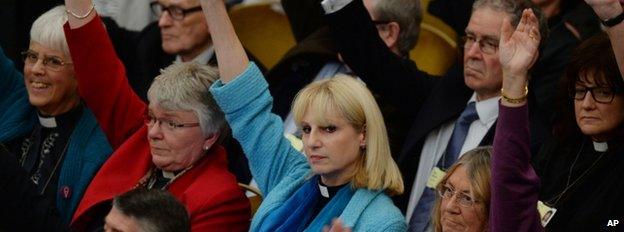
By Caroline Wyatt, BBC religious affairs correspondent
For those who fought long and hard first for women priests, then for women bishops, the consecration of the Rev Libby Lane on 26 January will be a day for celebration and rejoicing.
And for those within the Church of England clergy and laity who do not recognise female leadership, the efforts to accommodate their sensitivities at the consecration of a traditionalist suffragan bishop, the Rev Philip North, on 2 February, may be of some comfort.
As one clergyman commented on Twitter, the compromise found by the Archbishop of York in the consecration plans for Mr North "should be seen... as a loving and necessary gesture to those who oppose women priests".
But will it? Another terms it a "very Anglican compromise" - in that nobody can claim outright victory, while the church does its best to walk a sometimes uncomfortable middle way between those for and those against female church leadership.

Dr Sentamu referenced the "five guiding principles" agreed by the Church last year, in which the General Synod said all orders of ministry should be "open equally to all, without reference to gender".
But he also quoted another of the principles, which accepted that there were those who "on grounds of theological conviction, are unable to receive the ministry of women bishops or priests" and said the Church "remains committed to enabling them to flourish within its life and structures."
He said the arrangements for Mr North's consecration were made "for prayer, not politics".

The Reverend Libby Lane will be consecrated as Bishop of Stockport at York Minster on Monday
A spokeswoman for Watch, which campaigned for the introduction of female bishops, said the organisation was "dismayed" at the arrangements.
"We believe it is unprecedented that an archbishop should be present at a consecration in his own province and not lay hands on a candidate," she said.
"We are saddened that there will be such a powerful visual sign of a divided College and House of Bishops at the moment of consecration."
Speaking about the consecration of the first female bishop, the spokeswoman added: "That will be a great day, and nothing should detract from that moment of affirmation for all women in all walks of life."
- Published20 January 2015

- Published7 November 2014
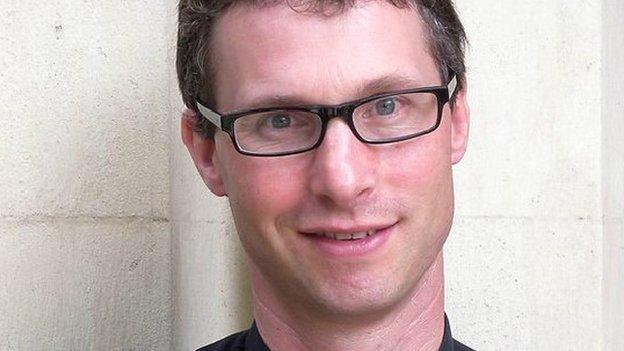
- Published17 December 2012
